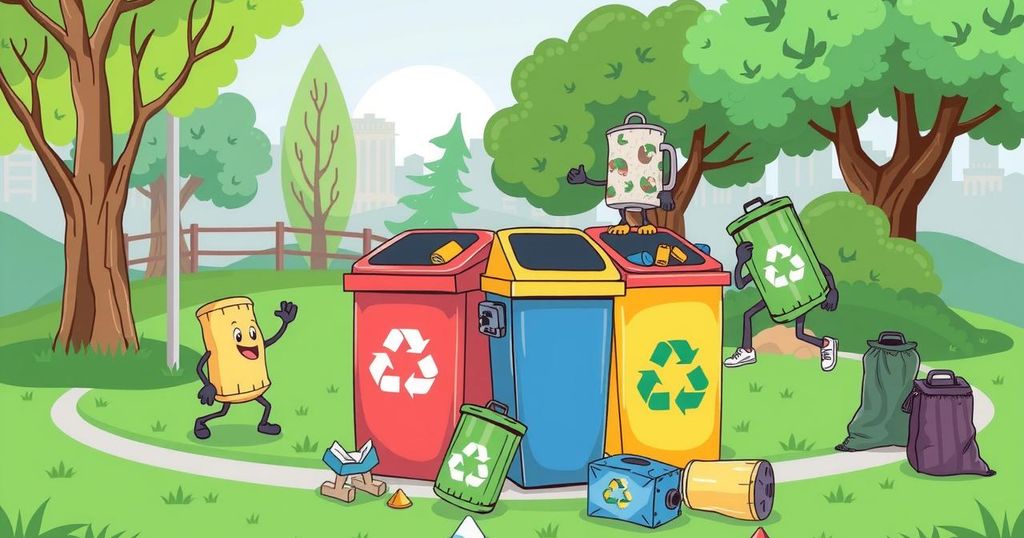The article discusses the waste management crisis in Ghana, illustrating the experiences that led to the founding of the Green Africa Youth Organization (GAYO) by the author and a friend in 2015. GAYO addresses waste problems through community education, recycling initiatives, and practical solutions, emphasizing youth involvement and sustainability. The organization has gained recognition, including attention from Prince William, as they work to expand their model throughout Ghana and other African nations.
The narrative commences with the author reflecting on their upbringing in a village in northern Ghana, where traditional composting practices utilized organic waste. The transition to urban life in Cape Coast revealed a stark reality of waste mismanagement, exposing the author to the prevalent littering and inadequate waste collection, leading to environmental crises including severe flooding and community displacement, notably after the Volta River flood in 2023.
The situation is aggravated by the informal waste dumping practices observed at Agbogbloshie, where hazardous waste was incinerated near food markets, creating health hazards for the community. A personal tragedy, involving the loss of a friend due to exposure to toxins at the waste processing site, underscores the devastating impacts of waste mismanagement on human health.
Recognizing the urgent need for change, the author co-founded the Green Africa Youth Organization (GAYO) in 2015, alongside university friend Joshua Amponsem. With support from educators at the University of Cape Coast, GAYO aims to implement practical climate solutions in Ghanaian communities. Initial initiatives included beach clean-ups and educational outreach to fishermen on pollution prevention, fostering a community-oriented approach towards environmental care.
The organization has educated communities on adopting a zero-waste lifestyle by emphasizing proper waste segregation and responsible consumption practices. However, the existing waste infrastructure posed challenges, as municipalities often collected sorted waste together, undermining educational efforts.
To adapt, the author initiated a Zero Waste Management Model in New Edubiase, later replicated in major cities. Educational efforts were broad, targeting disaster risk reduction and waste management strategies in schools, where composting and recycling were actively promoted. The initiative also included a sustainable fashion component, transforming waste into useful products while empowering young women through sewing workshops.
GAYO introduced incentives for waste separation at the source, equipping households with designated bins and establishing buy-back centers for recyclables. The organization emphasizes fair compensation for waste collectors, creating a sustainable economic model around recycling.
GAYO’s youthful leadership has spearheaded initiatives funded through competitive grants, such as the African Climate Change Innovation Challenge, which supports innovative solutions in sustainability. Notably, the organization gained recognition when Prince William expressed interest in their work at the Earthshot Awards, providing additional impetus to expand their model across Ghana and beyond.
This poignant account illustrates the dire waste management issues in Ghana and the proactive measures undertaken by youth organizations to create impactful environmental change, highlighting the importance of community involvement and education in fostering sustainable practices.
In conclusion, the article highlights the significant environmental challenges facing Ghana due to ineffective waste management and the critical role that youth-led initiatives, such as the Green Africa Youth Organization, play in addressing these issues. By promoting sustainable practices and community involvement, GAYO seeks to implement impactful solutions, underscoring the interconnectedness of environmental health and community resilience. The recognition received from influential figures further strengthens their commitment to expanding these efforts nationally and across the African continent.
Original Source: www.getaway.co.za






